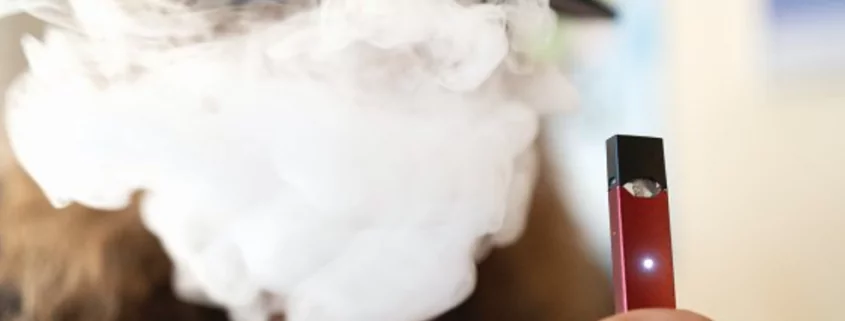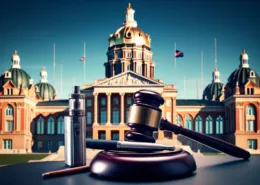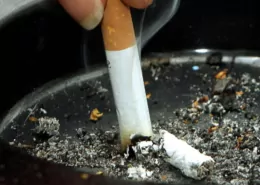Wisconsin Sees Decline in Underage Tobacco and Vape Sales in 2024
The Wisconsin Department of Health Services (DHS) has announced a noteworthy decrease in the rate of underage tobacco and vape sales by retailers in 2024. According to the annual Synar Survey, a statewide assessment of retailer violation rates, the percentage of retailers selling to underage consumers dropped from 13.6% in 2023 to 11.8% in 2024. Despite this improvement, public health officials emphasize that the rate remains unacceptably high and that continued efforts are necessary to maintain the downward trend.
State Health Officer Paula Tran highlighted the importance of preventing young people from starting to use commercial tobacco and nicotine products, stating, “We know that more than 80% of adult smokers started before the age of 18, and about 95% of them before turning 21. This is why it is so important to continue the work to prevent young people from starting to use commercial tobacco and nicotine products to protect their health today and long into the future.”
The recent Synar Surveys have focused on monitoring sales to individuals under the age of 21, aligning with the federal law change in 2019 that raised the legal tobacco sales age from 18 to 21. Wisconsin, however, remains one of only eight states that has not yet updated its state law to match the federal standard, leading to confusion and enforcement challenges.
To address this issue, DHS launched the statewide Tobacco 21 public awareness campaign in 2022. The campaign reinforces the message that 21 is the minimum legal sales age for tobacco and vape products and includes targeted messages for both the public and tobacco and vape retailers.
The 2024 data revealed that tobacco and vape shops had the highest rate of underage sales at 30%, compared to gas stations (11.8%) and other retail outlets (10.8%). In response, the DHS Wisconsin Commercial Tobacco Prevention and Treatment Program has observed an increase in local zoning ordinances aimed at limiting the number and location of these shops, particularly in proximity to schools, playgrounds, and other areas frequented by youth.
Vicki Huntington, section manager of the DHS Commercial Tobacco Prevention and Treatment Program, praised the efforts of Wisconsin communities, stating, “We see more Wisconsin communities stepping up to take positive actions that protect young people in their communities. These communities are reducing youth access to commercial tobacco products by limiting the number of tobacco retailers in proximity to schools, playgrounds, and other places young people gather.”
The 2024 Synar Survey also revealed gender disparities in underage sales, with males experiencing a higher rate of sales (14.4%) compared to females (9.8%). Additionally, underage males were most often sold e-cigarettes (17.9% of completed sales), while underage females were most often sold cigarillos (15.7% of completed sales).
Huntington emphasized the importance of public and retailer awareness, as well as the impact of local actions in reducing underage access to tobacco and vape products. She also suggested that moving flavored cigarillos behind the counter, similar to other tobacco, vape, and pouch products, could have a significant positive impact on the health of Wisconsin’s youth.
Retailers can access free training to help them comply with the Tobacco 21 sales law at witobaccocheck.org and can order free materials on the Tobacco 21 webpage. Wisconsinites seeking assistance with quitting commercial tobacco and e-cigarettes can visit WIQuit.org or call 1-800-QUIT-NOW or text “READY” to 34191 for free support, including free nicotine replacement therapy if medically eligible.
- Press Release: Wisconsin Underage Tobacco and Vape Sales Decreased in 2024
- Is It Illegal to Vape or Smoke While Driving in Massachusetts? - August 5, 2025
- Austria Plans to Ban Disposable E-Cigarettes - August 5, 2025
- Vaping vs. THC Drinks: Which Cannabis Option Is Right for You? - August 4, 2025







